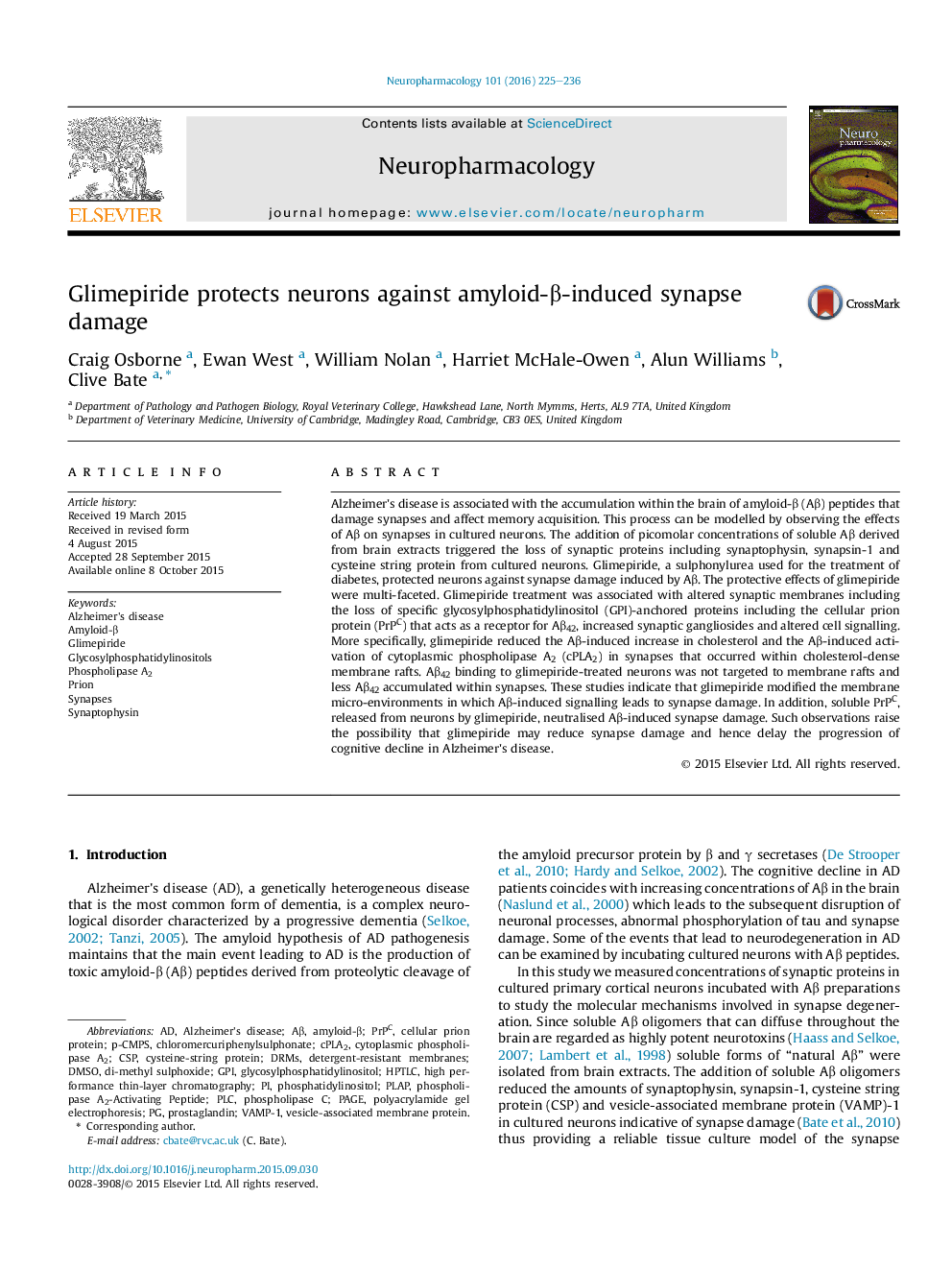| Article ID | Journal | Published Year | Pages | File Type |
|---|---|---|---|---|
| 2493114 | Neuropharmacology | 2016 | 12 Pages |
•Natural amyloid-β (Aβ) caused synapse degeneration.•Glimepiride provided protection against Aβ-induced synapse degeneration.•Glimepiride reduced the Aβ-induced activation of cytoplasmic phospholipase A2.•Glimepiride released cellular prion proteins (PrPC).•Soluble PrPC neutralised toxic forms of Aβ.
Alzheimer's disease is associated with the accumulation within the brain of amyloid-β (Aβ) peptides that damage synapses and affect memory acquisition. This process can be modelled by observing the effects of Aβ on synapses in cultured neurons. The addition of picomolar concentrations of soluble Aβ derived from brain extracts triggered the loss of synaptic proteins including synaptophysin, synapsin-1 and cysteine string protein from cultured neurons. Glimepiride, a sulphonylurea used for the treatment of diabetes, protected neurons against synapse damage induced by Aβ. The protective effects of glimepiride were multi-faceted. Glimepiride treatment was associated with altered synaptic membranes including the loss of specific glycosylphosphatidylinositol (GPI)-anchored proteins including the cellular prion protein (PrPC) that acts as a receptor for Aβ42, increased synaptic gangliosides and altered cell signalling. More specifically, glimepiride reduced the Aβ-induced increase in cholesterol and the Aβ-induced activation of cytoplasmic phospholipase A2 (cPLA2) in synapses that occurred within cholesterol-dense membrane rafts. Aβ42 binding to glimepiride-treated neurons was not targeted to membrane rafts and less Aβ42 accumulated within synapses. These studies indicate that glimepiride modified the membrane micro-environments in which Aβ-induced signalling leads to synapse damage. In addition, soluble PrPC, released from neurons by glimepiride, neutralised Aβ-induced synapse damage. Such observations raise the possibility that glimepiride may reduce synapse damage and hence delay the progression of cognitive decline in Alzheimer's disease.
